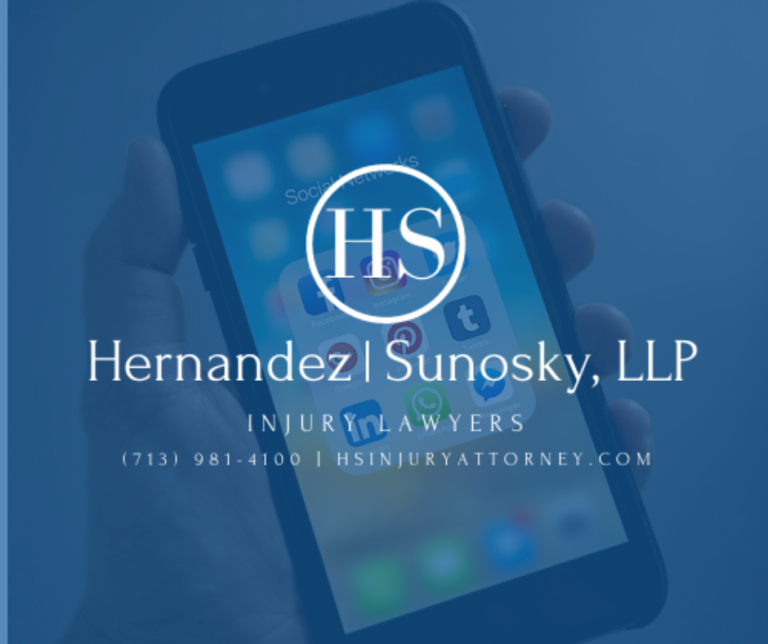HOUSTON TX INJURY ATTORNEY
Social media usage is one of the most popular online activities. It is estimated that 79 percent of the U.S. population has a social networking profile. Social media networks like Facebook, Instagram, LinkedIn, Twitter, WhatsApp and other social networks are an easy way to keep up with friends, families and colleagues. It can be a wonderful tool to give others a view into your world so they can see your daily engagements and activities. It can also be dangerous if you’re in the middle of a personal injury claim.
In a personal injury case, you’ll likely be seeking financial compensation from the at-fault party’s insurance company, or even your own. The insurance companies will do everything they can to save money and find some justification for denying your claim for compensation. To do this, the insurance companies and their attorneys will try to find some evidence to argue your injuries are not as severe as claimed. Where do they look? The easiest and most accessible place to look is social media. If you aren’t careful, your social media postings can provide a treasure trove of information that will be used against you by the insurance companies.
For example, let’s say you were involved in a car accident and made a claim demanding financial compensation for injuries to your neck and back. If you post pictures of you playing basketball or even holding your young child in your arms a week after the accident, the insurance company could use those images to argue you’re not hurt as badly as you claim. There might be a reasonable explanation for why you were able to engage in the physical activity, but don’t give the insurance companies the ammunition to use the pictures against you.
How To Protect Your Personal Injury Claim
There are simple ways to prevent insurance companies or the at-fault party from collecting evidence from your social media accounts. Here are some tips:
- Limit your social media posts: DO NOT mention anything about your accident or injuries online. This includes posting status updates, pictures, or any other information about your personal injury claim. This is important while your case is underway because the insurance companies can misconstrue your posts. For example, if you post on Facebook that you were involved in an accident but state “I’m okay” or minimize the scope or severity of your injuries, this can affect your claim. Your intention may have been to give some reassurance to your friends and families after an accident, but the insurance companies will twist your words. They will argue that you told the world you’re okay, yet are claiming injuries when it comes to trying to recover money in a personal injury claim. Simply don’t do it. Don’t help the insurance companies with your posts.
- Adjust your privacy settings: Restrict access to the highest privacy setting possible. That way, strangers or those who may be unfriendly to you, i.e., the insurance company, won’t be able to see your social media posts.
- Tell friends and family not to post any pictures of you: Tell them that you are in the middle of legal proceedings and that anything they share could hurt your claim.
- Look at your list of “friends”: Don’t accept new friend requests from people you don’t recognize. It could be an insurance adjuster trying to access your information.
In summary, social media has allowed all of us to connect with friends and families and build new relationships. However, social media can provide evidence that can hurt your personal injury claim. Don’t give the insurance companies any reason to deny you fair and full compensation for injuries that someone else caused.
Contact Hernandez Sunosky, LLP To Fight For The Compensation You’re Owed
Hernandez Sunosky, LLP is an accomplished personal injury firm serving clients in Texas. Our Top-Rated attorneys are ex-insurance company lawyers with over 40 years of collective experience. We know how to use the insurance company’s strategies and playbook against them. Call us 24/7 at (713) 981-4100 for a 100% free, no obligation consultation. Let us help you maximize your financial compensation.

